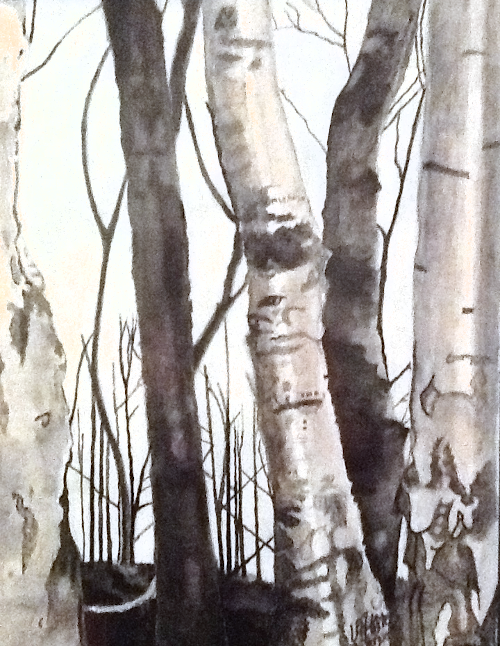 Tarima
Tarima
To the west of Moru Kel, at the source of the Kilpo River, lies the city of Tarima. Predominately populated by elvenfolk, Tarima was once an uneasy vassal of the Urek Empire — with the decline of the empire it’s emerged as its own city-state. A final jewel of civilization before the vast rural forests and hills sprawling outward to the Burkhdyn Gazar, Tarima is a fitting sibling city for the New Skandara by the Bay. While comprised primarily of elves, a fair quarter of the population are other folks. Humans and dwarves make up the majority of that difference, with a few Iswari and river mahksi rounding out the numbers. The city itself is woven between the trees and spans twin branches of the river: between the forks is a brief break in the forest’s coverage, an open meadow used for many festivals and community gatherings.
Government
Tarima is ruled by the Conservator General, a position appointed to serve the elven people when no noble family is present in the area — the ruling family either fled or died out long ago. The Conservator General and the Council of Stewards exercise absolute power in the city. They traditionally seek the guidance of the Dreamspeaker, an elder who is skilled at interpreting the visions that the elvenfolk see during their trances. The Dreamspeaker is usually a representative of the wild elves to the south and west of the city, serving both as a philosophical savant and as an ambassador to the more primitive wild elves. The Dreamspeaker alone is responsible for selecting their own successor.
The stewards are chosen from notable citizenry — the custom in recent years is to have at least one human and one dwarven representative on the council, with the other six drawn from the ranks of the wood elves of the city.
Commerce
Tarima trades most heavily with Moru Kel and with the wild elves that surround it. Woodcraft is a notable specialty: while the elves are loathe to fell healthy old trees, they are stewards of the forest who will cull the sick and use them to craft everything from musical instruments and fine furniture to canoes and wooden weapons. Their iron oaks are fine hardwood, but it the wood of the shona tree that is particularly valued. Strong, light, and richly hued, it is never traded to non-elves. Rarely an outsider who proves their friendship to Tarima will be gifted with an object of shona, but it is never sold. A recipient is allowed to gift it to their children freely.
Tarima’s kasha, or coffeetree, is also economically important: the pods of this tree yield fragrant “beans” or “berries” which are roasted and then ground and used to brew coffee. A rich, hot beverage with strong anti-soporific attributes, this drink has recently become popular in Moru Kel, and is a valuable trade commodity from Kelcarn to Quayshi.
Tariman brocades are also much sought-after, with the finest such works appearing almost to be thinly embossed fabrics until close inspection. Indeed, the emblematic blue and silver woven robes of the Marghoz were woven by the looms of Tarima. The beautifully upholstered Quirina furniture currently in fashion among the nobles of Moru Kel is a literal marriage of their twin traditions of woodworking and weaving: Lady Quirina was renowned for her robes and cloaks long before she wed Lord Quirina and began making furniture with him.
Medicinal herbs and fungi and fine bronzework are among their other industries: blades, needles, and the like are a particular speciality. Tariman bows with bronze arrowheads are well-respected, and their needles are the most prized among the tattoo parlors of the dock districts.
Culture and Entertainment
The music of the city befits its stature as a woodworking capital. In addition to traditional Tariman lutes, flutes, drums, and pipes, the dwarvish rebec has made its way east with immigrants from the Burkhdyn region. The result is quite pleasing indeed, with even their more maudlin ballads far more listenable than the dirges of Quayshi.
Poetry, though, occupies the preëminent spot in Tariman arts. Either as standalone epic or set to music as lyrics, Tariman poems tend toward the lyric and the epic. More than one great bard has made their living touring Odo Kas and performing a largely Tariman repertoire.
Tariman food favors the local ginger root, which combines earthiness with spiciness in delightfully elven fashion. Donga beans, trout, and nutgrubs are all garnished with finely minced ginger, to good effect. The various berries and fruits of the region are generally well-known within Moru Kel, though the local brambleberries are somewhat more tart and less sweet than those of the coast.
Somewhat surprisingly, the architecture of the city is almost entirely built of stonework: wooden construction of buildings seems to be a cultural taboo.
Religion and Customs
Tarima’s worship of the gods is closely aligned with that of Moru Kel, as befits their long shared history. The reverence for the Dreamspeaker is unusual but somewhat in line with the tradition of Skura in Moru Kel.
↞ Previous: Saffa Next: Elven Wilds ↠